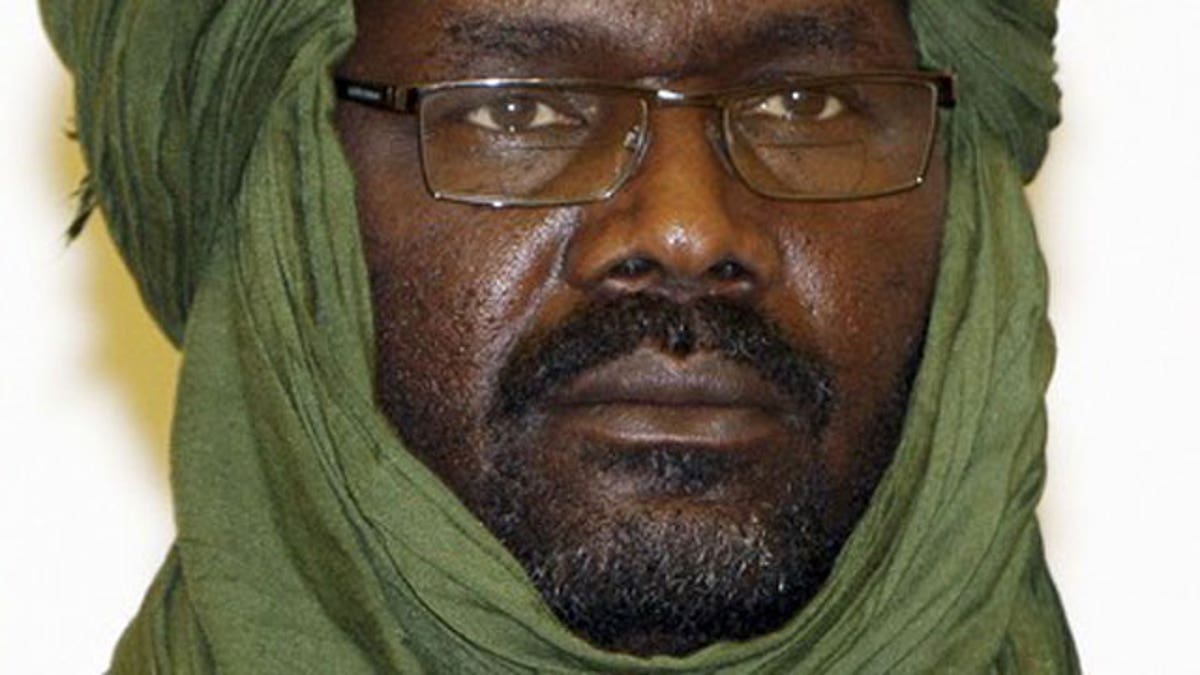
In this February 17, 2009 file photo Justice and Equality Movement (JEM) leader Khalil Ibrahim attends a news conference following peace talks in Doha. Sudan's armed forces claimed on December 25, 2011, to have killed Ibrahim. (Reuters)
KHARTOUM, Sudan – Sudanese troops killed Khalil Ibrahim, the leader of the main Darfur rebel group, in fighting early Sunday west of the capital Khartoum, the military said.
Ibrahim led the Darfur-based Justice and Equality Movement, or JEM, which unlike other Darfur rebel groups did not join a peace deal with the government in Khartoum.
An army statement, carried by the official SUNA news agency, said Ibrahim was killed in the North Kordufan state, at Wad Banda, an area 440 miles west of Khartoum. Ibrahim's group, JEM, could not immediately be reached for comment.
Fighting in the area flared up in the past days. On Saturday, the Sudanese army said the rebels from Darfur attacked three locations in neighboring North Kordufan, killing an unspecified number of civilians in an area where government forces were not present. JEM did not claim responsibility for Saturday's attack, but in 2008, it was behind a large-scale attack on the capital.
The military responded on Sunday, killing Ibrahim with a group of associates as the rebels where retreating toward South Sudan, which in July seceded from Sudan and became the world's youngest country.
Ibrahim was believed to have been until recently in Libya, where he enjoyed support of Moammar Gadhafi until the death of the Libyan dictator at the hands of the country's revolutionaries.
"The army cut all paths for the group as it was retreating and trying to cross into South Sudan to reorganize it forces," said Sudanese army spokesman Col. Khalid al-Sawarmy Saad. "Our gallant armed forces were able to kill rebel Khalil Ibrahim along with some of his associates."
"The armed forces laid a long chase and were able to impose an effective and complete siege against the remnants of Khalil Ibrahim's forces," said the military spokesman.
He commended the residents of Wad Banda who he said "gave the ultimate example of patriotism" in the face of "bad treatment they received from the rebel forces. "
Ibrahim's death is likely to be a significant blow to JEM. Darfur has been in turmoil since 2003, when ethnic African rebels accusing the Arab-dominated Sudanese government of discrimination took up arms against it.
The Khartoum government is accused of retaliating by unleashing Arab militias on civilians -- a charge the government denies. The U.N. estimates 300,000 people have died and 2.7 million have been displaced in the conflict.
Ismail el-Haj Musa, Sudanese deputy speaker of the council of states, told the pan-Arab Al Jazeera TV that Ibrahim re-entered Sudan sometime after Gadhafi's death and was en route south.
"He completely refused to come to the negotiating table, he never joined the peace talks," Musa said. "He committed acts against the state."
